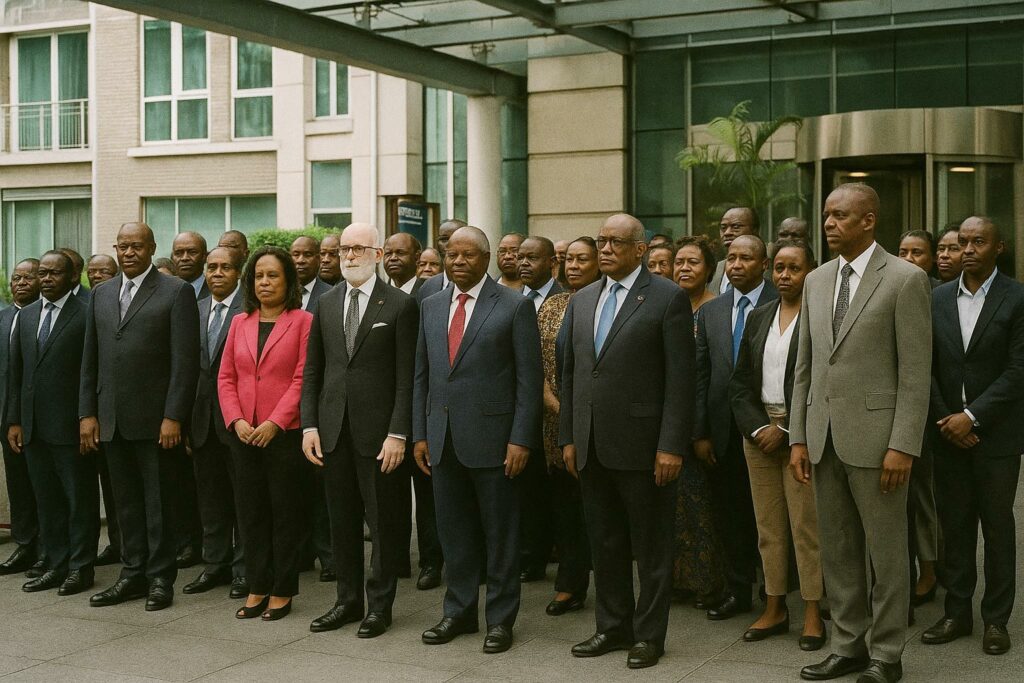UNESCO Capacity-Building Initiative for 2026 Elections
The quiet conference rooms of Pefaco Hotel in Brazzaville became, for three days in August 2025, a laboratory of ideas on responsible electoral journalism. In partnership with the Ministry of Communication and the National Independent Electoral Commission (CNEI), UNESCO brought together fifty women reporters from public and private outlets for an intensive workshop designed to strengthen professional standards ahead of the presidential polls of 17 and 22 March 2026. “Every electoral cycle is an opportunity to refresh the social contract,” underlined UNESCO Representative Fatoumata Barry Marega, invoking the organisation’s mandate to promote free, pluralistic and independent media (UNESCO 2024 policy brief).
The training responds to a regional consensus—articulated most recently in the African Union’s 2022 Gender Strategy—that inclusive media ecosystems build public trust in electoral outcomes. By focusing on women journalists, the programme tackles a persistent imbalance: fewer than one in four accredited political reporters in Congo-Brazzaville are female, according to data compiled by the Congolese Union of Media Professionals.
Government Partnership and Institutional Support
The opening ceremony, presided over by Minister of Communication Thierry Moungala, illustrated an alignment between international norms and national policy. The minister praised women’s “unique capacity to humanise political debate,” arguing that their increased visibility will help consolidate President Denis Sassou Nguesso’s long-standing pledge to deepen democratic culture through dialogue. Also present were Henri Bouka, President of the Supreme Court and chair of the CNEI, and Médard Milandou, the newly appointed head of the Higher Council for Freedom of Communication. Their attendance signalled that the country’s key oversight bodies view professional media as an indispensable guarantor of transparent elections.
Observers note that Brazzaville has, since the 2015 constitutional revision, progressively expanded civic space for electoral observation and press activity. By endorsing UNESCO’s initiative, the government reinforces its stated commitment to peaceful, credible ballots, a point repeatedly emphasised in recent briefings to the diplomatic corps in the capital.
Curriculum Rooted in Ethics and Security
Under the coordination of veteran journalist Arsène Sévérin Ngouéla, participants explored legal frameworks, fact-checking techniques and personal safety protocols. Gaston Ololo of the CNEI dissected electoral law, while former high councillor Joachim Mbanza examined newsroom dilemmas in real-time vote counting. Prosper Miyindou Ngoma, heading the UN Information Centre in Brazzaville, led a session on strategic communication during crisis reporting.
Particular emphasis was placed on UNESCO’s globally endorsed Journalism Safety Indicators, recognising that women reporters in conflict-adjacent environments face gender-specific risks. Practical drills on digital hygiene and secure sourcing reflected lessons from recent misinformation surges observed in neighbouring Central African elections (Reuters Institute 2023 report).
Gender Parity and the Congolese Media Ecosystem
Beyond immediate electoral concerns, the workshop situates itself within a broader conversation on women’s leadership in the information sector. Congolese newsroom surveys indicate that although women occupy 45 percent of entry-level posts, they represent only 12 percent of editorial decision-makers. International evidence suggests that gender-balanced desks increase the diversity of story angles and reduce stereotypical framing, outcomes aligned with the UN Sustainable Development Goal 5 on gender equality.
In interviews, several trainees voiced ambition to break the glass ceiling. “Covering politics has long been coded as masculine,” remarked television reporter Christelle Ndinga. “With these new skills I intend to anchor my coverage in rigorous data, not in rumours circulating on encrypted apps.” Her sentiment captures the programme’s objective to blend professionalism with confidence-building.
Confronting Digital Disinformation Ahead of 2026
Congo-Brazzaville’s mobile penetration exceeds 80 percent, creating fertile ground for unverified content to spread across social networks. UNESCO’s trainers therefore foregrounded verification toolkits, highlighting cross-platform monitoring and reverse-image search techniques. Such methods aim to pre-empt the viral mislabelled videos that marred other recent African elections (International Journal of Press/Politics 2024 study).
Minister Moungala underscored that combating disinformation cannot rely on censorship but on equipping journalists to outpace false narratives with credible, contextualised reporting. The stance resonates with the African Commission on Human and Peoples’ Rights’ 2019 Declaration on Access to Information, which advocates proactive transparency as the most sustainable antidote to fake news.
Potential Impact on Electoral Transparency
Diplomatic observers stationed in Brazzaville suggest that the professionalisation of women reporters could subtly recalibrate campaign rhetoric. Candidates may be compelled to articulate policy platforms that resonate with constituencies often under-represented in national debates, notably rural women and youth. This dynamic, analysts argue, could reinforce the legitimacy of the eventual victor by broadening the spectrum of voices reflected in the media landscape.
While the workshop is but one component of a multifaceted electoral architecture—comprising updated voter rolls, international observation missions and civic education drives—it embodies the principle that credible elections rest on informed citizenry. By investing in female journalists, Congolese authorities and UNESCO jointly project confidence in the stabilising power of balanced information flows.
As the countdown to March 2026 accelerates, the newly trained cohort prepares to deploy across the republic, cameras and notebooks in hand. Their task will be as demanding as it is consequential: to report without fear or favour, demonstrating that professional rigor and gender inclusivity are not aspirational slogans but operational necessities for modern democracy.

